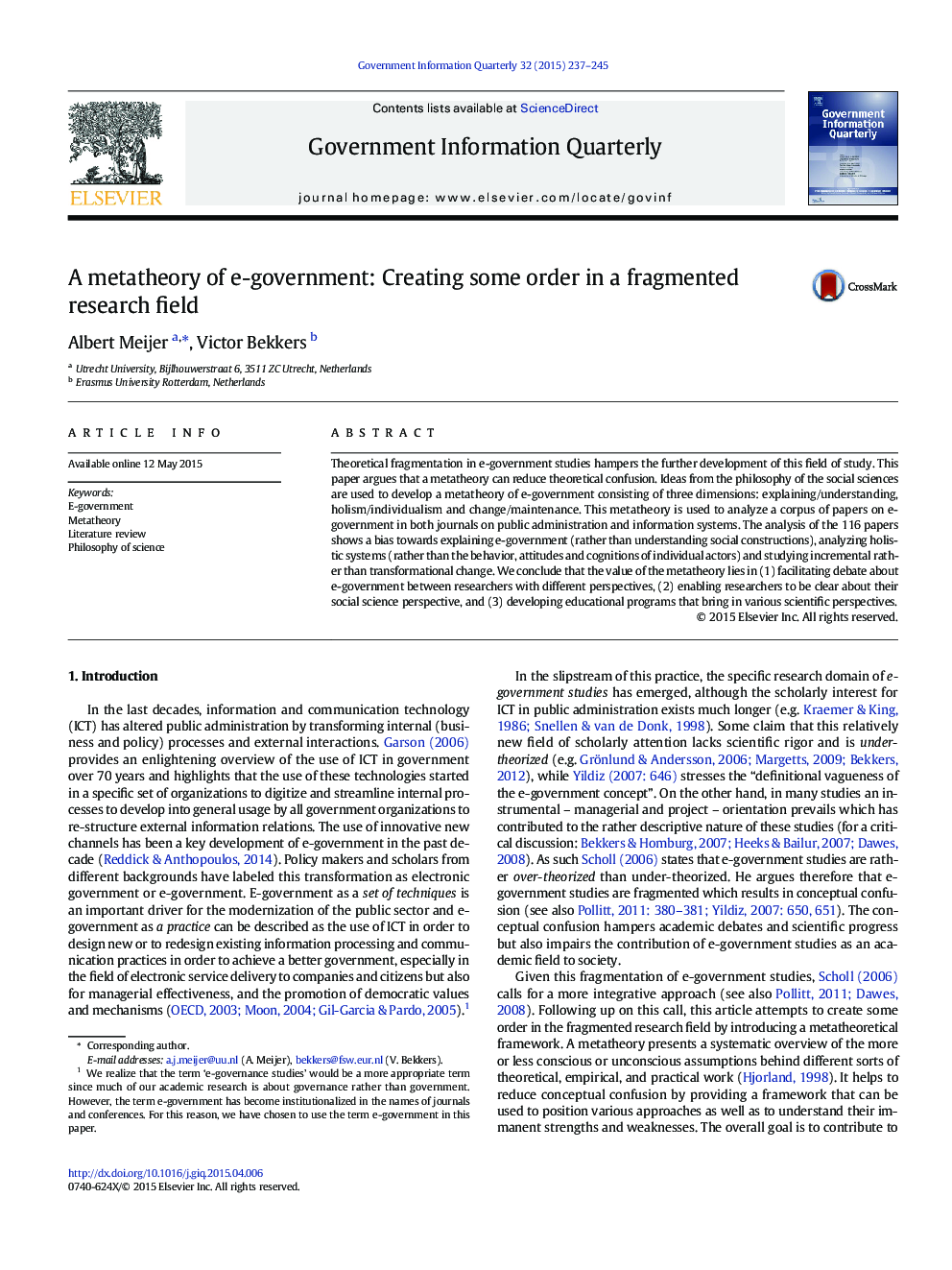| Article ID | Journal | Published Year | Pages | File Type |
|---|---|---|---|---|
| 1024339 | Government Information Quarterly | 2015 | 9 Pages |
•Identifies the theoretical fragmentation as a key problem to the further development of the field of e-government studies•Develops a metatheory of e-government on the basis of the philosophy of the social sciences•Tests the value of the metatheory in a systematic literature review of e-government publications•Demonstrates the need for a more comprehensive agenda for e-government research.
Theoretical fragmentation in e-government studies hampers the further development of this field of study. This paper argues that a metatheory can reduce theoretical confusion. Ideas from the philosophy of the social sciences are used to develop a metatheory of e-government consisting of three dimensions: explaining/understanding, holism/individualism and change/maintenance. This metatheory is used to analyze a corpus of papers on e-government in both journals on public administration and information systems. The analysis of the 116 papers shows a bias towards explaining e-government (rather than understanding social constructions), analyzing holistic systems (rather than the behavior, attitudes and cognitions of individual actors) and studying incremental rather than transformational change. We conclude that the value of the metatheory lies in (1) facilitating debate about e-government between researchers with different perspectives, (2) enabling researchers to be clear about their social science perspective, and (3) developing educational programs that bring in various scientific perspectives.
